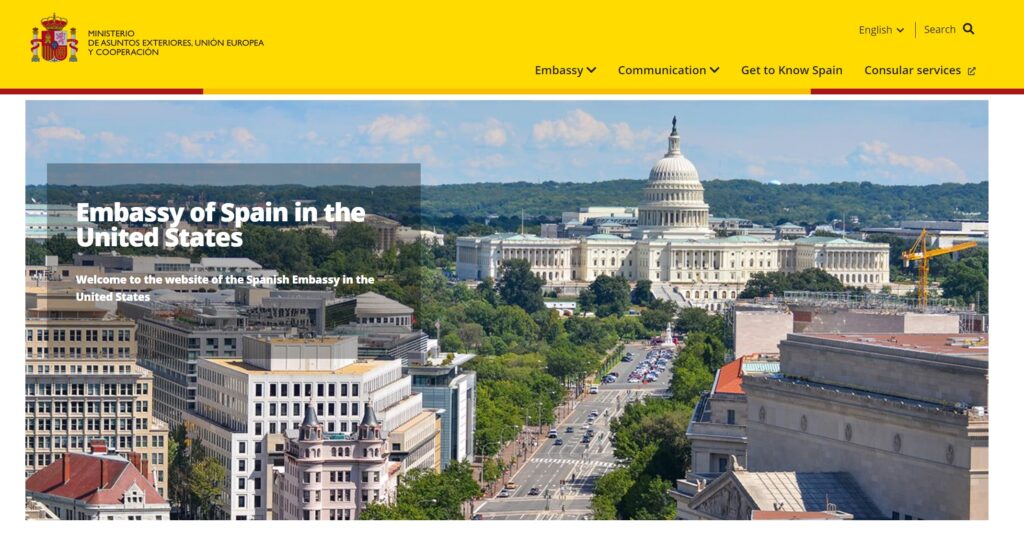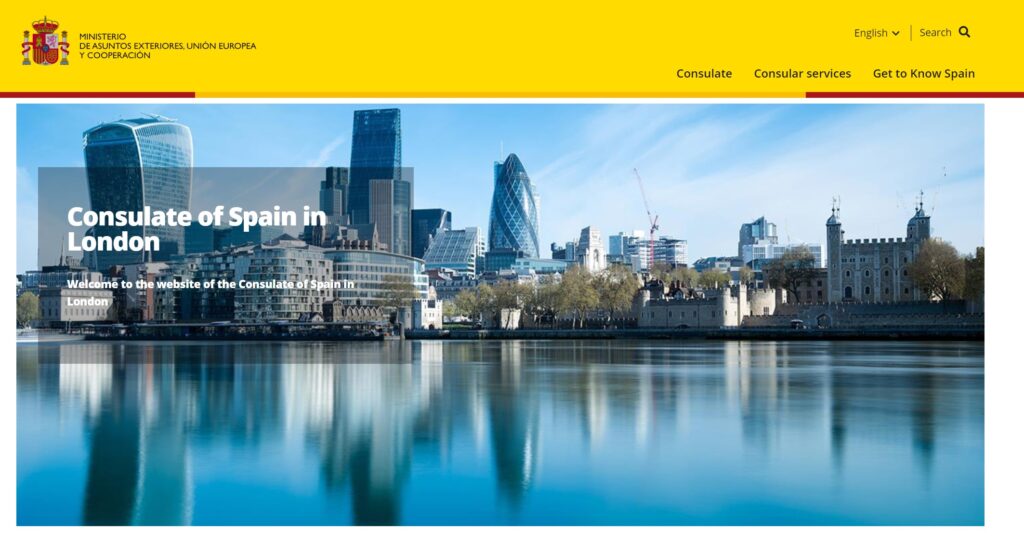What are Embassies and Consulates?

Should you look for Embassies or Consulates to get your Visa to Spain? And which ones? In this post, we will clarify this point by establishing the differences between the two institutions for once and for all.
Before moving to Spain, you will need to get your documents ready. The main one is certainly the visa, but there may be more requirements or needs depending on your nationality and on the type of visa you apply for.
The way to find out exactly what you need is checking a website of an Embassy or Consulate of Spain. Better yet if you look at the one that covers the area where you live, as if there is any specific requirement or restriction, it will be outlined there. But which one, the Embassy or the Consulate? Let’s check the differences between these two institutions:
What is an Embassy?
An Embassy is a state organism affiliated to the ministry of foreign affairs that deals with governmental issues, like international laws, voting on international organizations and agreements between the Embassy’s country and the host country.
There is only one embassy of each country in another country, and they are usually in the capital. For instance, the Embassy of Spain in the US is in Washington, and there is no other Embassy of Spain in the USA (though there may be multiple Consulates of Spain in the USA). Embassies do not focus on helping public (like issuing passports or visas); they focus on governmental relations between the two countries – the country that owns the embassy (in our example, Spain) and the country that hosts that embassy (in this example, the US).
Internally, an embassy usually has several sectors, such as commercial, cultural and political sectors. When there are not enough citizens of that nationality to justify keeping a separate consulate, the embassy assumes the consular functions as well, having a consular sector within itself. This sector works as a regular consulate, issuing the same documents a consulate would.

What is a Consulate?
Consulates are state organisms affiliated to the ministry of foreign affairs that deals mainly with public requests and documents, such as passports, visas, birth and death certificates, power of attorneys, etc.
Consulates usually cover a smaller area than the embassies, like a few states in the USA or in Brazil; there may be more than one Consulate per country, or none, depending mainly on the number of nationals that live in said country. For instance, if there are many Spanish citizens living in Argentina, there will be many Consulates of Spain in Argentina, likely in the areas with bigger concentration of Spanish nationals, to provide assistance to those Spanish citizens. There will be only one Embassy of Spain in Argentina, though, in Buenos Aires, regardless of how many Spanish citizens live there.
Note the standard way to refer to Embassies and Consulates: (Institution) of (country that own the institution) in (city or country where it is located). So, for example, the Consulate of Spain in London is the Spanish government institution located in London – not the other way around. It is the place were Spaniards go to renew their passports and were non-Spaniards living in London go to get a visa to Spain if they so wish. The place where UK nationals go to renew their documents in say, Malaga, would be the Consulate of the UK in Malaga – which happens to not follow the standard and prefers to be called the British Consulate in Malaga.
When planning a move to Spain, one should first check if there is a Consulate of Spain that covers the area where one lives. If there is, this is the institution that will be able to help with a visa request and provide information on all other requirements. In case there is not such a consulate, then the Embassy of Spain in that country will be the institution to be contacted.

Conclusion
Think of a Visa as of an invitation to go to someone’s house: only the house owner can invite someone there. Likewise, only Spain, through their consulates and embassies, can issue a visa to live in Spain, though it is true that due to Spain belonging to the Schengen area, having a visa to another member of the Schengen space would also allow to live in Spain. We look further on this issue on improve your chances of success at getting a visa, where we also talk about honorary consulates and why there is usually no point contacting them. See you soon!







